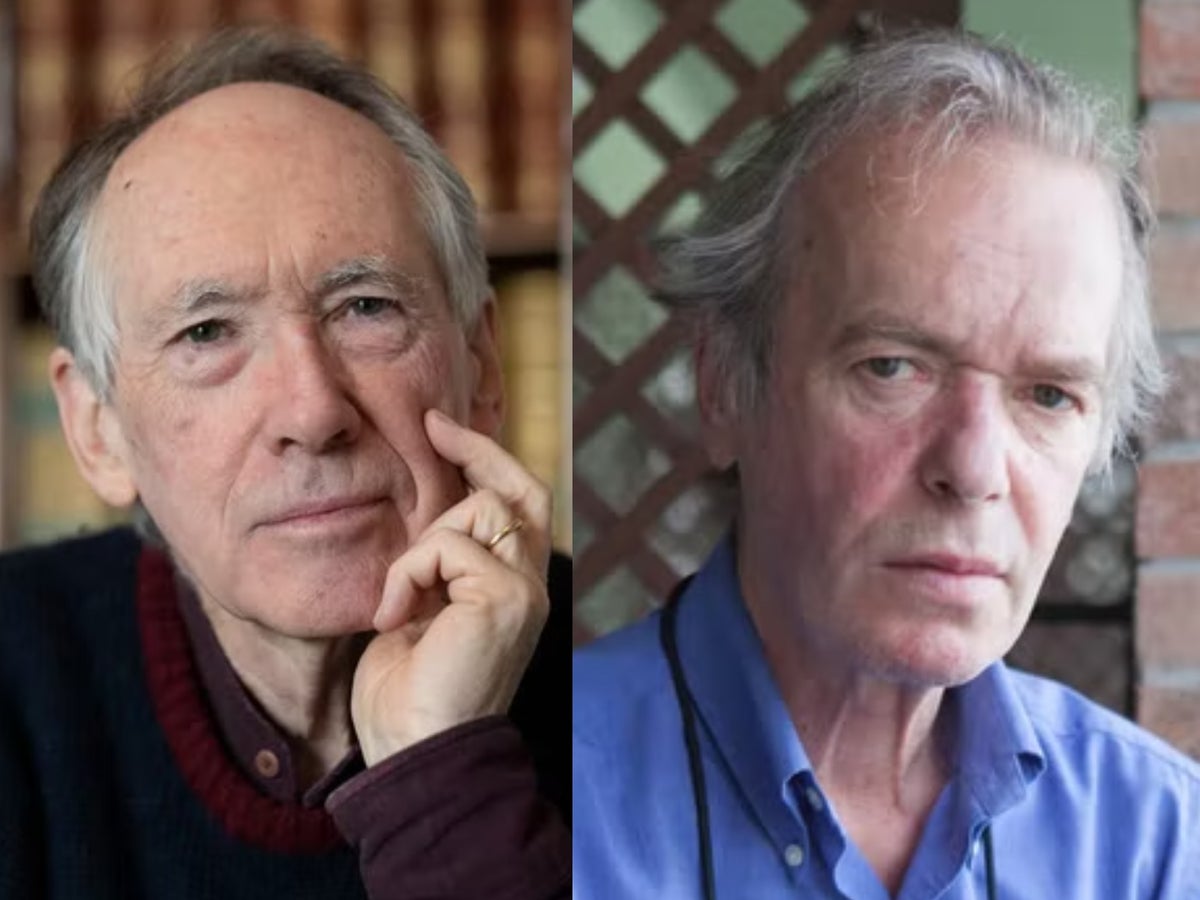
Ian McEwan has paid tribute to his late friend Martin Amis.
The author behind acclaimed novels such as London Fields and Money died from cancer of the oesophagus aged 73, his wife, the writer Isabel Fonseca, announced on Sunday (21 May).
Following the news of Amis’ death, tributes poured in for the author from literary figures including Salman Rushdie and Jonathan Coe.
McEwan is the latest author to share his praise of Amis, appearing on BBC Radio 4’s Today programme.
The Atonement writer mourned a 49-year-old friendship with Amis, describing his late friend as “very tender, very sweet, and very generous”.
McEwan, 74, said: “He was very funny. From my very first meeting I encountered a kind of conversational wit and liveliness that I had never known in my life.”
Asked whether Amis was “fearsome” in real life, McEwan responded that there was a “great tenderness about Martin that never really reached public press”.
“Martin had the knack, often in a crowded room, (of) making for the most vulnerable person because he had heard of some misfortune,” said McEwan. “He was wonderful with my own family. He made marvellous relationships with them as children.”

“There is a great tenderness about Martin that never really reached public press. He was always seen as the Mick Jagger of literature, which was just foolish.”
An enfant terrible of the literary world, Amis regularly courted controversy with his work as well as his personal views. In his lifetime, he attracted accusations of misogyny along with criticism over his stance on the war in Iraq and views on Islam post-9/11.
His 1989 novel London Fields was controversially omitted from that year’s Booker Prize shortlist after two female panel members objected to the treatment of his women characters.
McEwan continued: “Martin ranged with even more rifts than Keith Richards and Mick Jagger put together. Of course he was in another world, a world of meanings and a world, too, of comic misunderstandings.”
Born in Oxford, the son of celebrated author Kingsley Ami and Hilary Bardwell, Amis was the author of 15 novels, two story collections and seven non-fiction works including his 2000 memoir Experience.

Speaking of Amis’ literary prowess, Amis said: “He really was one of those writers who cares a lot about the sentence. He had a real dedication to getting things right. He didn’t just think on to the typewriter.
“The work ranges from beautiful, extraordinary misunderstandings of the bedroom to the distortion and horrific nature of the tabloid press, right through to the degradation of Stalinism and the Holocaust, which Martin read about constantly through his life.”
He later called Amis “every commissioning editor’s dream”.
Speaking of Amis’s last years, McEwan said that the author was “reading the world’s press” until the day he died.

“There was something about his last days that say something about his life, as long as he could get through all the drugs he had to take and awful oppression of the illness he had. Once he was set up for the day, he read,” said McEwan.
“As he died, he was getting to the end of Robert Tombs’ history of the English, which we talked about a lot. A passionate writer but a passionate reader, some of his best nonfiction are his essays… I think it was key to Martin’s attention to the sentence.”
Amis is survived by Fonseca and his five children.







